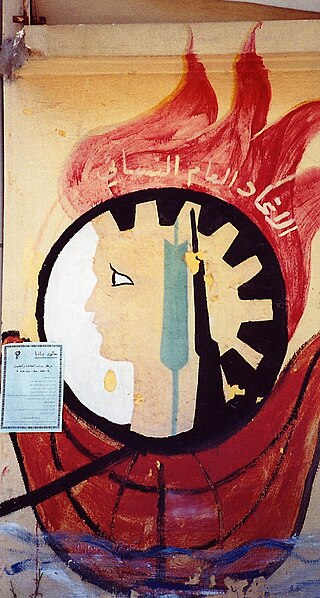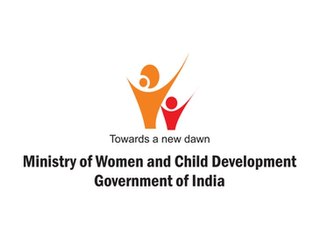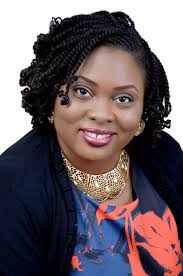
Development aid is a type of foreign/international/overseas aid given by governments and other agencies to support the economic, environmental, social, and political development of developing countries. Closely related concepts include: developmental aid, development assistance, official development assistance, development policy, development cooperation and technical assistance. It is distinguished from humanitarian aid by aiming at a sustained improvement in the conditions in a developing country, rather than short-term relief. Development aid is thus widely seen as a major way to meet Sustainable Development Goal 1 for the developing nations.

The system of education in Uganda has a structure of 7 years of primary education, 6 years of secondary education, and 3 to 5 years of post-secondary education. Education in Uganda is administered in English. All throughout the levels in the education structure, modules are taught and assessed in English. The government of Uganda recognizes education as a basic human right and continues to strive to provide free primary education to all children in the country. However, issues with funding, teacher training, rural populations, and inadequate facilities continue to hinder the progress of educational development in Uganda. Girls in Uganda are disproportionately discriminated against in terms of education; they face harsher barriers when trying to gain an education and it has left the female population disenfranchised, despite government efforts to close the gap.

The General Union of Syrian Women (GUSW) was founded in 1967 with Saud al Abdallah serving as the original president. It aimed to mobilize women while developing their education, political activism, and skills that helped women become more effective members in socio-economic settings. While Syrian women have historically held more rights when compared to the rest of the Arab world, the GUSW is working to put an end the isolation and marginalization of Syrian women as well as involve women to become more of an effective population in society. This movement was born out of the unification of various welfare associations, volunteer organizations, and welfare groups caused by various political shifts in Syria.

The Philippine Commission on Women, is a government agency run by the government of the Philippines with the intention of promoting and protecting the rights of the Women in the Philippines. It was established on January 7, 1975, through Presidential Decree No. 633.

The Ministry of Women and Child Development, a branch of the Government of India, is an apex body for formulation and administration of the rules and regulations and laws relating to women and child development in India. The current minister for the Ministry of Women and Child Development is Smriti Irani having held the portfolio since 31 May 2019.

The Ministry of Women, Family and Community Development, abbreviated KPWKM, is a ministry of the Government of Malaysia responsible for social welfare: children, women, family, community, older people, destitute, homeless, disaster victim, disabled. The ministry determines the policies and direction to achieve the goals of gender equality, family development and a caring society in line with Malaysia's commitment towards the United Nations' Convention on the Elimination of All Forms of Discrimination Against Women and the Beijing Declaration.
Gender inequality in India refers to health, education, economic and political inequalities between men and women in India. Various international gender inequality indices rank India differently on each of these factors, as well as on a composite basis, and these indices are controversial.

Hon. Barr. Manuela George-Izunwa is a Nigerian politician who served as Rivers State Commissioner of Women Affairs from 2007 to 2009. During her tenure, her stated campaign goals were better treatment of widows, economic female empowerment and the prevention of violence against women, as well as furthering women's health and female education.

Women in Oman now pursue careers and professional training, moving from their previous and traditional role at home to the public sphere. In Oman, 17 October is celebrated every year as the Omani Women's Day with various pro-female events.
Sara Hlupekile Longwe is a consultant on gender and development based in Lusaka, Zambia. She was the chairperson of FEMNET between 1997 and 2003. She is the author of the Longwe Framework for Gender Analysis. Longwe describes herself as a radical feminist activist.
Women's education in Pakistan is a fundamental right of every female citizen, according to article thirty-seven of the Constitution of Pakistan, but gender discrepancies still exist in the educational sector. According to the 2011 Human Development Report of the United Nations Development Program, approximately twice as many males as females receive a secondary education in Pakistan, and public expenditures on education amount to only 2.7% of the GDP of the country. The unemployment rate of female graduates in Pakistan is approximately 3.8 times higher than that of their male counterparts.

Females in Nigeria have a basic human right to be educated, and this right has been recognized since the year 1948 adoption of the Universal Declaration on Human Rights (UDHR) According to a report in 2014, female education has an important impact on the development of a stable, prosperous and healthy nation state resulting in active, productive and empowered citizens. Educating girls develop growth rates, encourages independence of the girl child and reduces social disparities. In 2009, the Nigerian Population Council (NPC) observed that women with higher educational qualifications are more likely to be in formal wage employment than those at the level of primary school education.
Under Article 15(3), the Constitution of India allows for positive discrimination in favor of women. The article, under right to equality, states that: "Nothing in this article shall prevent the State from making any special provision for women and children." In addition, the Directive Principles of State Policy 39(A) states that: "The State shall, in particular, direct its policy towards securing that the citizens, men and women equally, have the right to an adequate means of livelihood."
The socioeconomic impact of female education constitutes a significant area of research within international development. Increases in the amount of female education in regions tends to correlate with high levels of development. Some of the effects are related to economic development. Women's education increases the income of women and leads to growth in GDP. Other effects are related to social development. Educating girls leads to a number of social benefits, including many related to women's empowerment.
Nepal, a Himalayan country situated in South Asia, is one of the poor country because of undeveloped resources. It has suffered from political instability and has had undemocratic rule for much of its history. There is a lack of access to basic facilities, people have superstitious beliefs, and there are high levels of gender discrimination. Although the Constitution provides for protection of women, including equal pay for equal work, the Government has not taken significant action to implement its provisions.
Gender budgeting means preparing budgets or analyzing them from a gender perspective. Also referred to as gender-sensitive budgeting, this practice does not entail dividing budgets for women. It aims at dealing with budgetary gender inequality issues, including gender hierarchies and the discrepancies between women's and men's salaries. At its core, gender budgeting is a feminist policy with a primary goal of re-orienting the allocation of public resources, advocating for an advanced decision-making role for women in important issues, and securing equity in the distribution of resources between men and women. Gender budgeting allows governments to promote equality through fiscal policies by taking analyses of a budget's differing impacts on the sexes as well as setting goals or targets for equality and allocating funds to support those goals. This practice does not always target intentional discrimination but rather forces an awareness of the effects of financial schemes on all genders.

Women's empowerment may be defined in several ways, including accepting women's viewpoints, making an effort to seek them and raising the status of women through education, awareness, literacy, and training. Women's empowerment equips and allows women to make life-determining decisions through the different societal problems. They may have the opportunity to re-define gender roles or other such roles, which allow them more freedom to pursue desired goals.
The International Conference for Women Leaders is a biennial conference established in 1961 and held by MASHAV – Israel’s Agency for International Development Cooperation—at Israel's Ministry of Foreign Affairs, through MASHAV Carmel Training Center (MCTC), in Haifa and Jerusalem. It focuses on development themes of current interest for women in both developing and industrialized countries, often on topics declared by the United Nations to be of international concern.
Foreign aid for gender equality in Jordan includes programs funded by governments or non-governmental organizations (NGOs) that aim to empower women, close gender based gaps in opportunity and experience, and promote equal access to education, economic empowerment, and political representation in the Hashemite Kingdom of Jordan.
Feminist foreign policy, or feminist diplomacy, is a strategy integrated into the policies and practices of a state to promote gender equality, and to help improve women's access to resources, basic human rights, and political participation. It can often be bucketed into three categories: rights, resources, and representation. The concept was first coined and integrated into governmental policy by Margot Wallström, former Swedish Foreign Affairs Minister.









